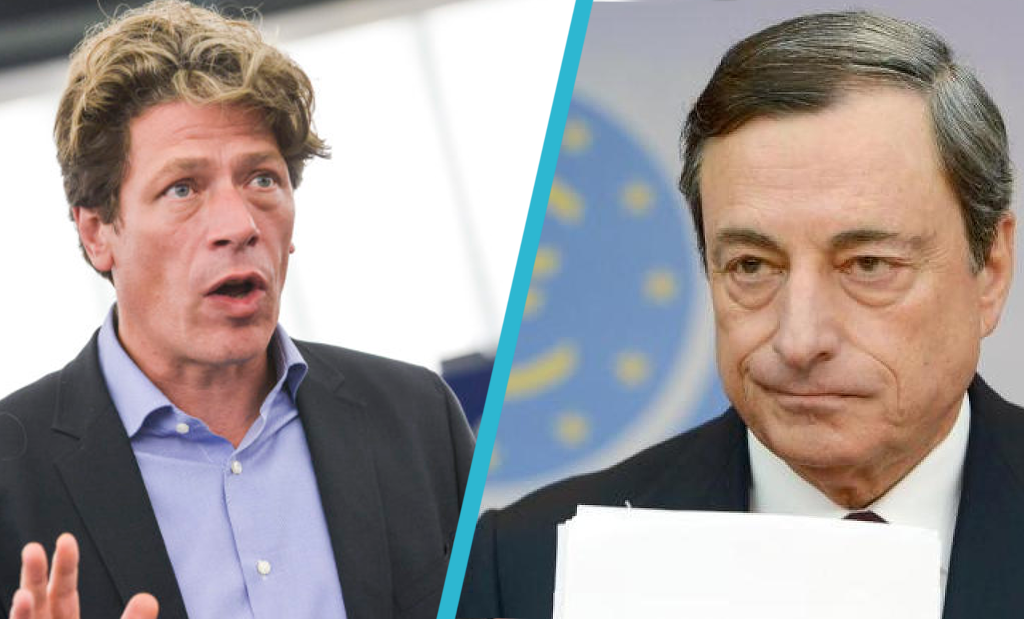European Central Bank is party to the Paris agreement on climate

Mario Draghi has publicly stated that the European Central Bank is bound by the Paris agreement on climate change. It remains however unclear what the ECB intends to do in order to fulfill its legal obligations to support climate change mitigation.
At a meeting in the European Parliament on 26 February 2018, Dutch Socialist MEP Paul Tang asked ECB President Mario Draghi about the role of the ECB in developing sustainable financial systems in the banking sector. Tang also pressed Draghi on the environmental impact of the ECB’s Corporate Sector Purchase Programme (CSPP) – a 140 billion euro programme which is highly skewed towards carbon-intensive companies such as Shell, Volkswagen, Total and others.
In his response, Draghi officially endorsed our view that ‘the ECB is party to the Paris Agreement’ on climate change. He went onto say that the ECB ‘recognises the challenge posed by climate change and the importance of policies aimed at addressing it.’
This is a welcome shift in attitude from the ECB, given its non-committal response last year to a letter from a group of European politicians asking what steps the ECB is taking to contribute to the climate change goals of the European Union.
Draghi’s public support of the Paris Agreement can also be viewed as a direct response to the European Parliament’s annual report which stated that ‘the ECB as an EU institution is bound by the Paris agreement’ chiming with our demands to the ECB to take further action against climate change.
However, whilst Draghi states that the ECB understands the risk climate change poses, his response did not outline any measures being taken or planned by the ECB.
If the ECB recognises itself as a legally bound by the Paris agreement, this means the ECB do not just have a moral duty to support policies that compatible with sustainability, but it also has a legal duty to do so. Therefore, the ECB should do more than welcoming other people’s work on the issue and incorporate those into their policies.
Despite the growing criticism about its corporate bond purchase programme, the ECB appears to be increasing the amount of quantitative easing which is directed towards multinational corporations, thus signaling little concerns over the inconsistency of the CSPP programme with the Paris agreement.
Instead of abruptly increasing its corporate bonds purchases, the ECB should carry out an analysis of the carbon impact of its QE programme, with the view of revising its eligibility rules to better comply with climate change goals.